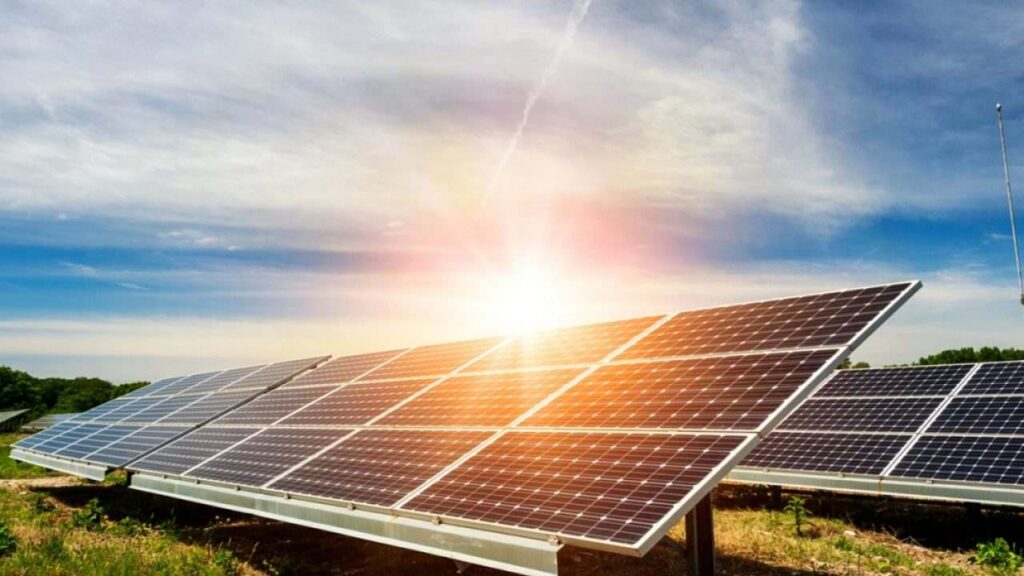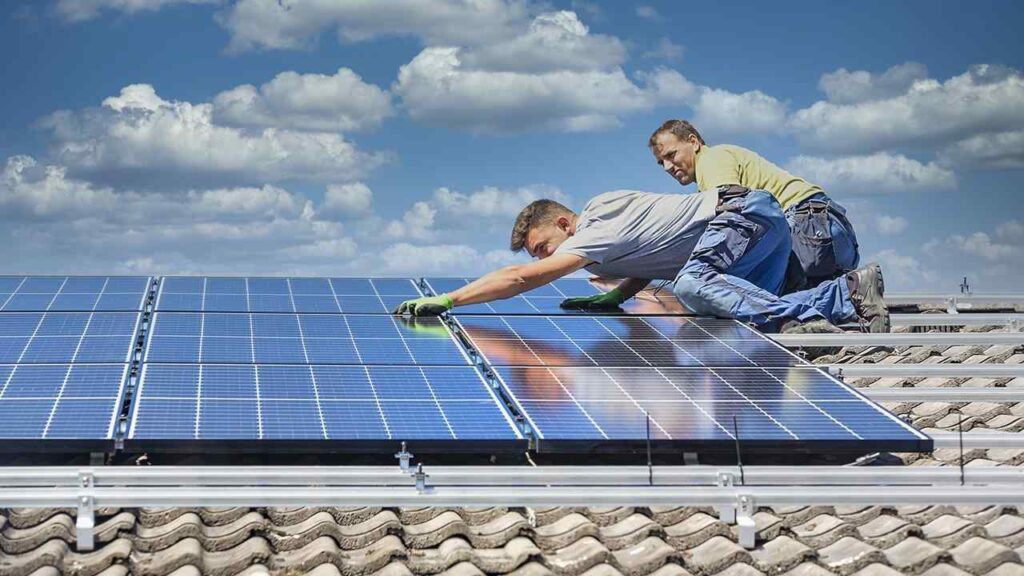With the growing emphasis on renewable energy sources, solar panel installations have become increasingly popular. However, to ensure a consistent power supply even when the sun isn’t shining, integrating a battery storage system has become crucial. The right choice of battery storage can significantly impact the efficiency, reliability, and overall success of your solar panel installation. In this guide, Authentic Roofing LLC will help you explore the key factors to consider when selecting the optimal battery storage system for your unique needs.
Factors to Consider When Choosing a Battery Storage System:
Energy Storage Capacity:
The first factor to consider is the energy storage capacity of the battery system. This capacity is measured in kilowatt-hours (kWh) and determines how much energy the battery can store. Analyze your household’s energy consumption patterns to choose a capacity that can cover your needs during cloudy days or nighttime. It’s important to strike a balance between capacity and cost to avoid overspending on excess storage you won’t utilize.

Battery Chemistry:
Battery chemistry directly impacts the performance, lifespan, and maintenance requirements of your storage system. Common options include lithium-ion, lead-acid, and saltwater batteries. Lithium-ion batteries are known for their high efficiency, longer lifespan, and lower maintenance needs, making them a popular choice for solar installations. However, budget constraints and environmental considerations might lead you to explore alternative chemistries.
Depth of Discharge (DoD):
The depth of discharge refers to how much you can drain a battery’s capacity before recharging it. Some batteries perform better with frequent shallow discharges, while others can handle deeper discharges. Understanding your usage patterns will help you choose a battery with an appropriate DoD, ensuring optimal efficiency and battery longevity.
Power Output:
Power output, measured in kilowatts (kW), indicates how much energy a battery can deliver at a given time. If you anticipate high electricity demand during specific periods, such as evenings when the sun isn’t shining, you’ll need a battery with higher power output. This prevents overloading the battery and ensures a smooth power supply.
Efficiency:
Battery efficiency affects how much energy is lost during the charging and discharging process. Look for batteries with high round-trip efficiency, as this reduces energy wastage and maximizes the usability of stored energy. Efficient batteries help you make the most of your solar-generated power and can lead to long-term savings.
Lifecycle and Warranty:
Consider the expected lifecycle of the battery system along with the manufacturer’s warranty. Lithium-ion batteries typically have longer lifespans compared to lead-acid batteries. A warranty that covers a significant portion of the battery’s life can provide peace of mind and protection against unexpected failures.
Physical Space and Installation:
Evaluate the available physical space for installing the battery system. Some batteries are compact and can be wall-mounted, while others require more space. Additionally, the solar panel installation process should be straightforward and ideally performed by professionals to ensure safety and optimal performance.
Integration with Solar Inverter:
The compatibility between your chosen battery storage system and the solar inverter is critical. The inverter converts the DC power generated by the solar panels into usable AC power for your home. Ensure that the battery system seamlessly integrates with your inverter to avoid compatibility issues.

Smart Features and Monitoring:
Advanced battery systems come with smart features and monitoring capabilities. These features allow you to track energy usage, monitor battery health, and even optimize energy consumption. Investing in a system with these features can help you make informed decisions about energy usage and storage.
Budget Considerations:
Lastly, your budget will play a significant role in determining the type of battery storage system you can afford. While lithium-ion batteries might be more expensive upfront, their longer lifespan and higher efficiency could make them a cost-effective choice in the long run. Consider the return on investment (ROI) over the battery’s lifespan when making your decision.
FAQs:
How do I know what battery I need for my solar system?
To determine the battery you need, analyze your energy consumption patterns, assess the duration of backup power required, and consider factors like battery capacity, chemistry, and compatibility with your solar inverter.
What is the best type of battery to use with solar panels?
Lithium-ion batteries are generally considered the best choice due to their high efficiency, longer lifespan, and ability to handle frequent charge and discharge cycles, making them ideal for solar panel setups.
What is the main type of battery used in storage systems for solar PV installations?
The main type of battery used in storage systems for solar PV installations is lithium-ion, thanks to its optimal performance, efficiency, and longevity.
How much battery storage does a solar PV system need?
The amount of battery storage needed for a solar PV system depends on your specific energy usage requirements, backup needs during cloudy days, and desired level of energy independence.
Conclusion:
Selecting the right battery storage system for your solar panel installation requires careful consideration of multiple factors. By assessing your energy needs, understanding battery chemistry, evaluating efficiency and power output, and factoring in budget constraints, you can make an informed decision that aligns with your goals. Remember that the optimal choice may vary depending on individual circumstances, so it’s essential to conduct thorough research and possibly consult with professionals in the field. A well-chosen battery storage system will enhance the reliability and sustainability of your solar energy setup, allowing you to make the most of your renewable energy investment.
